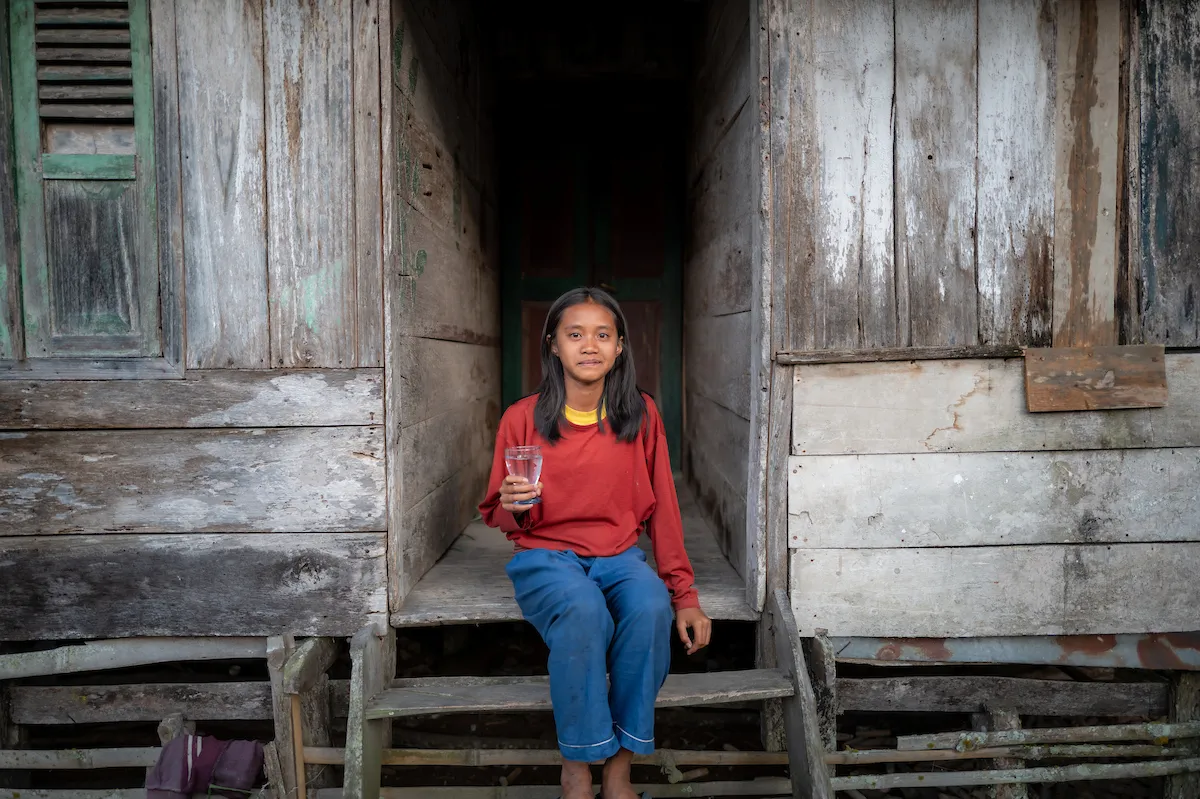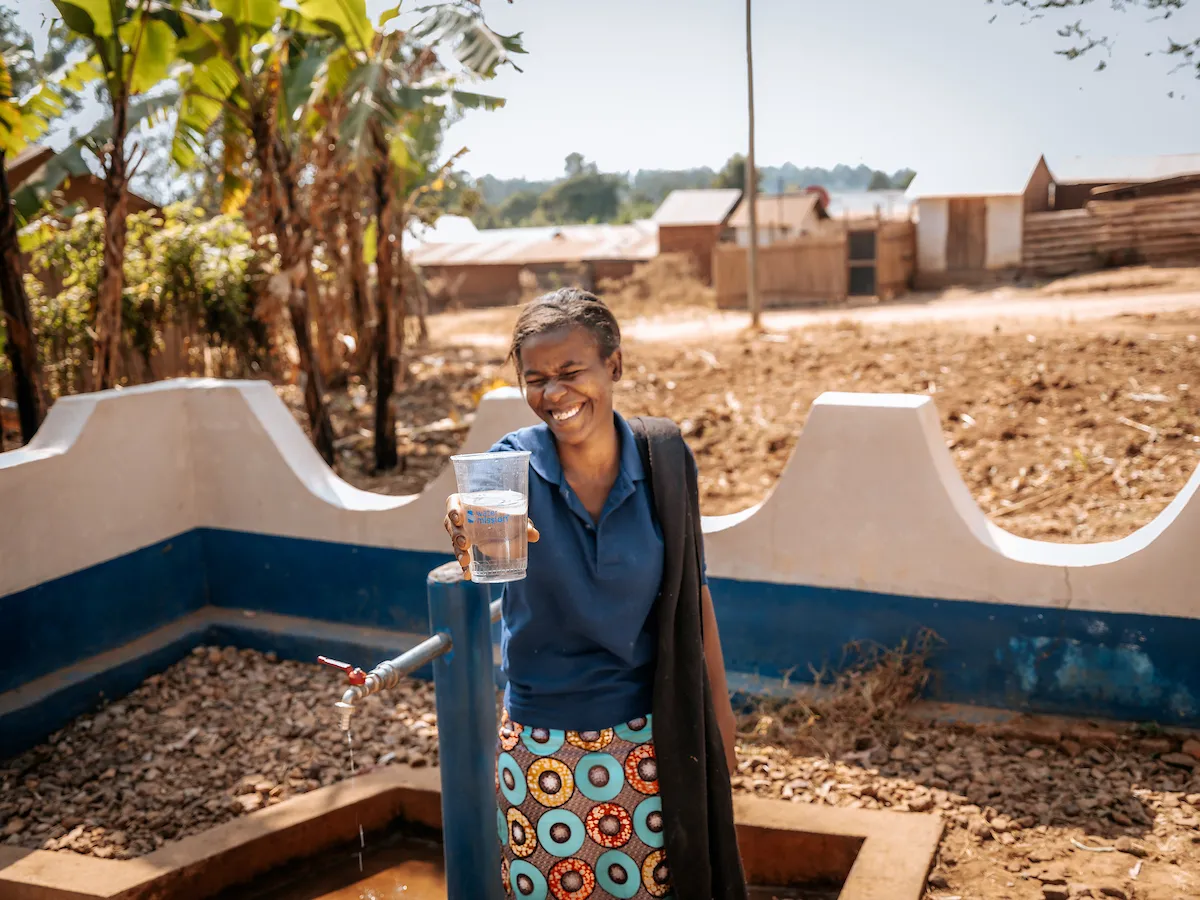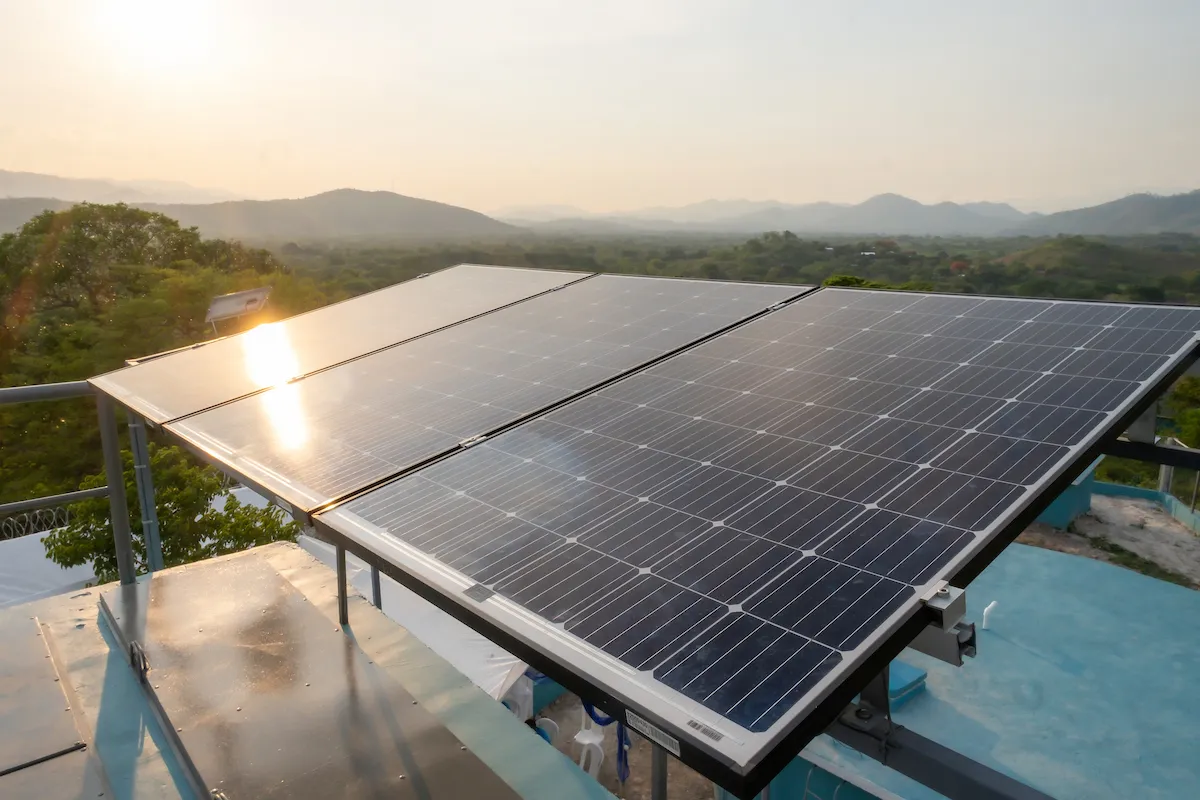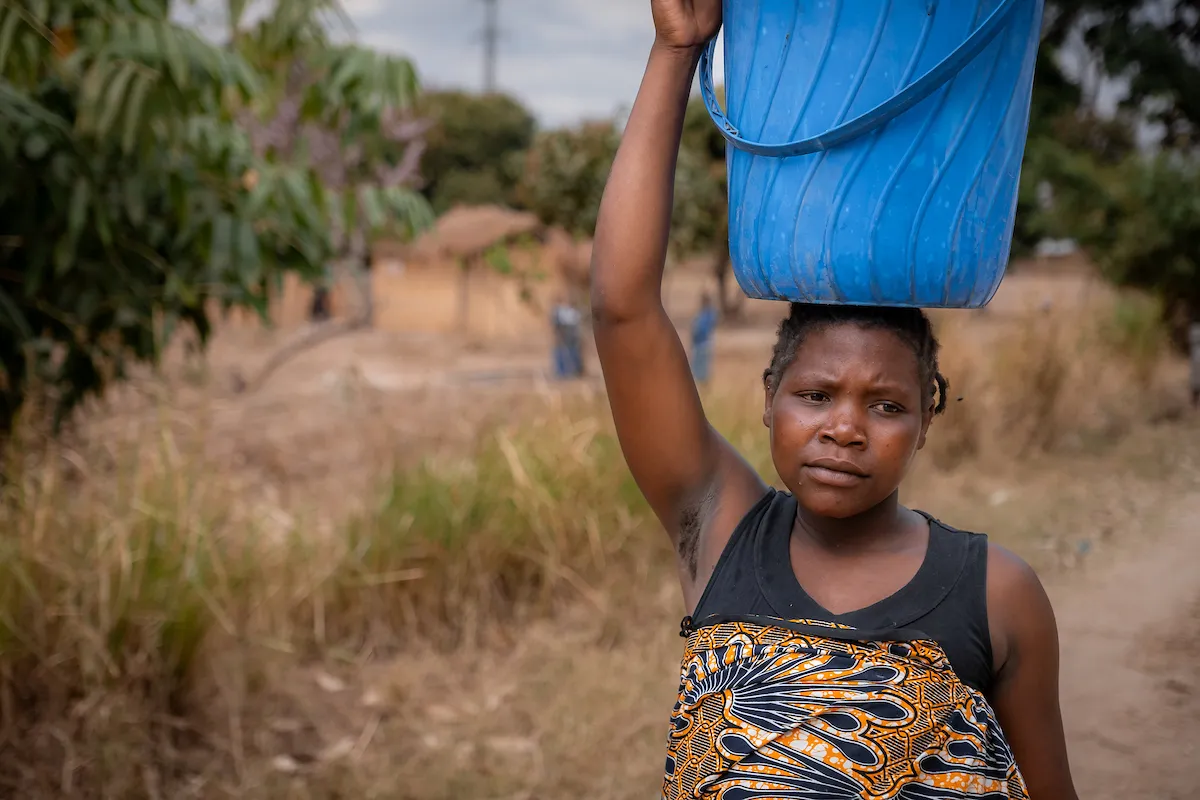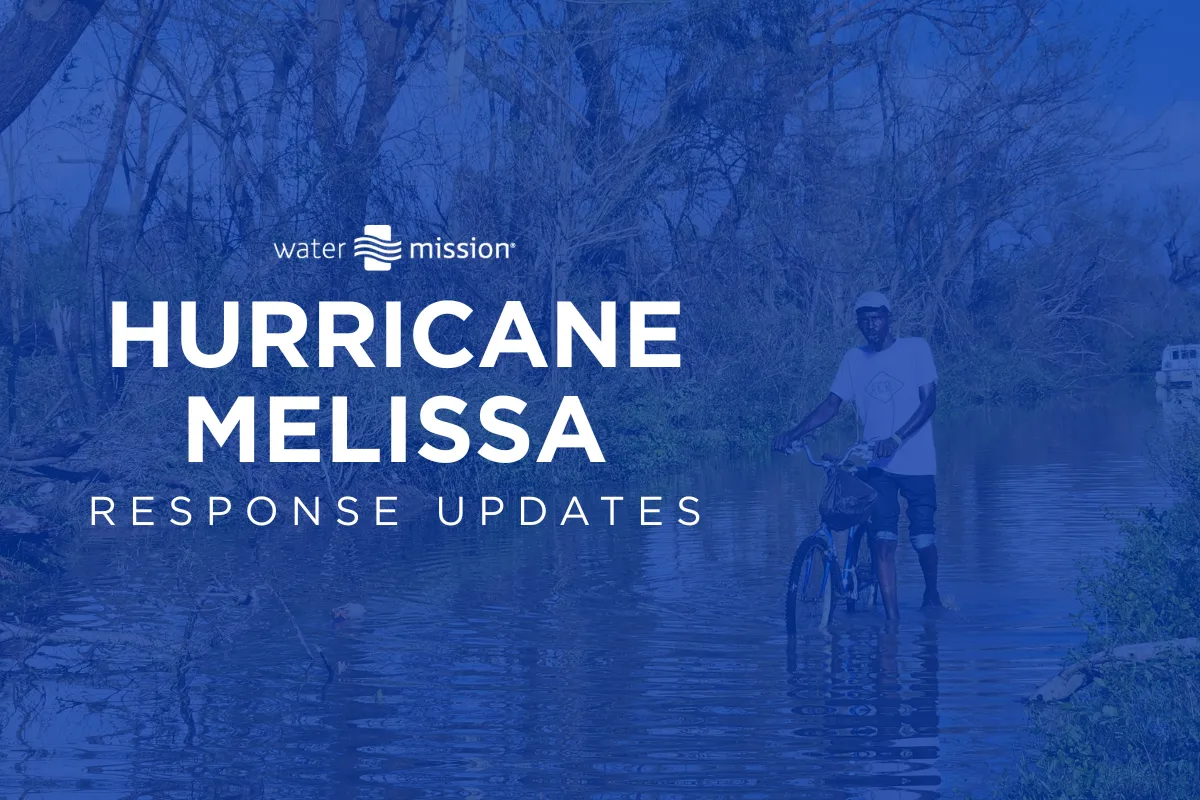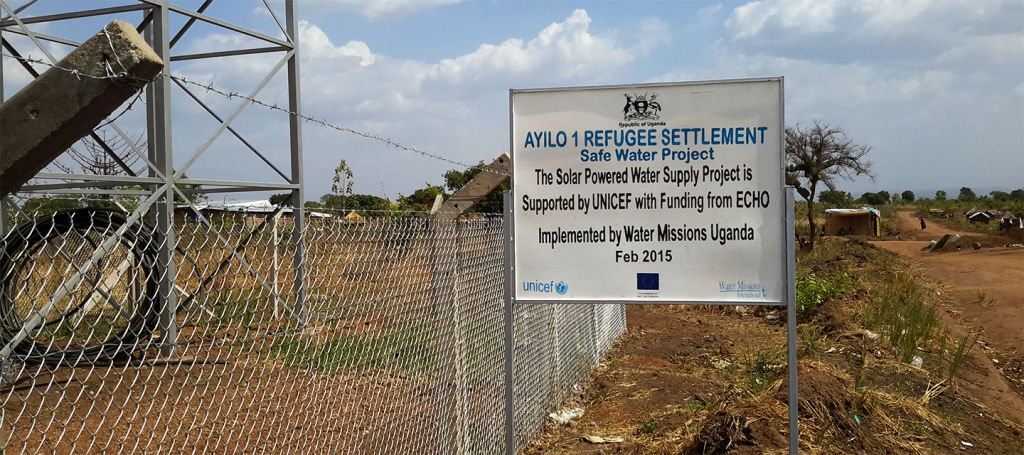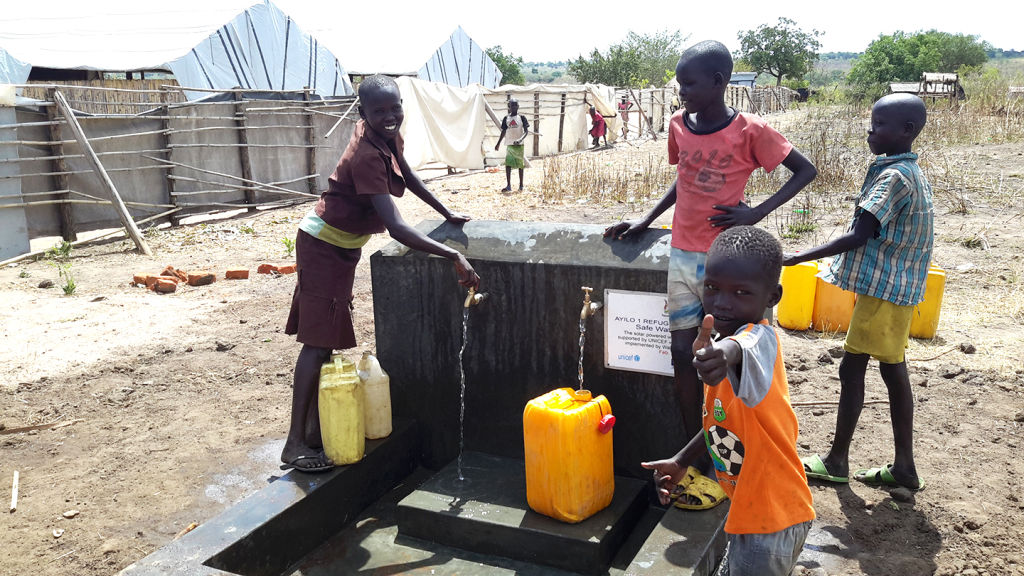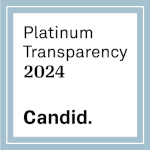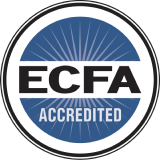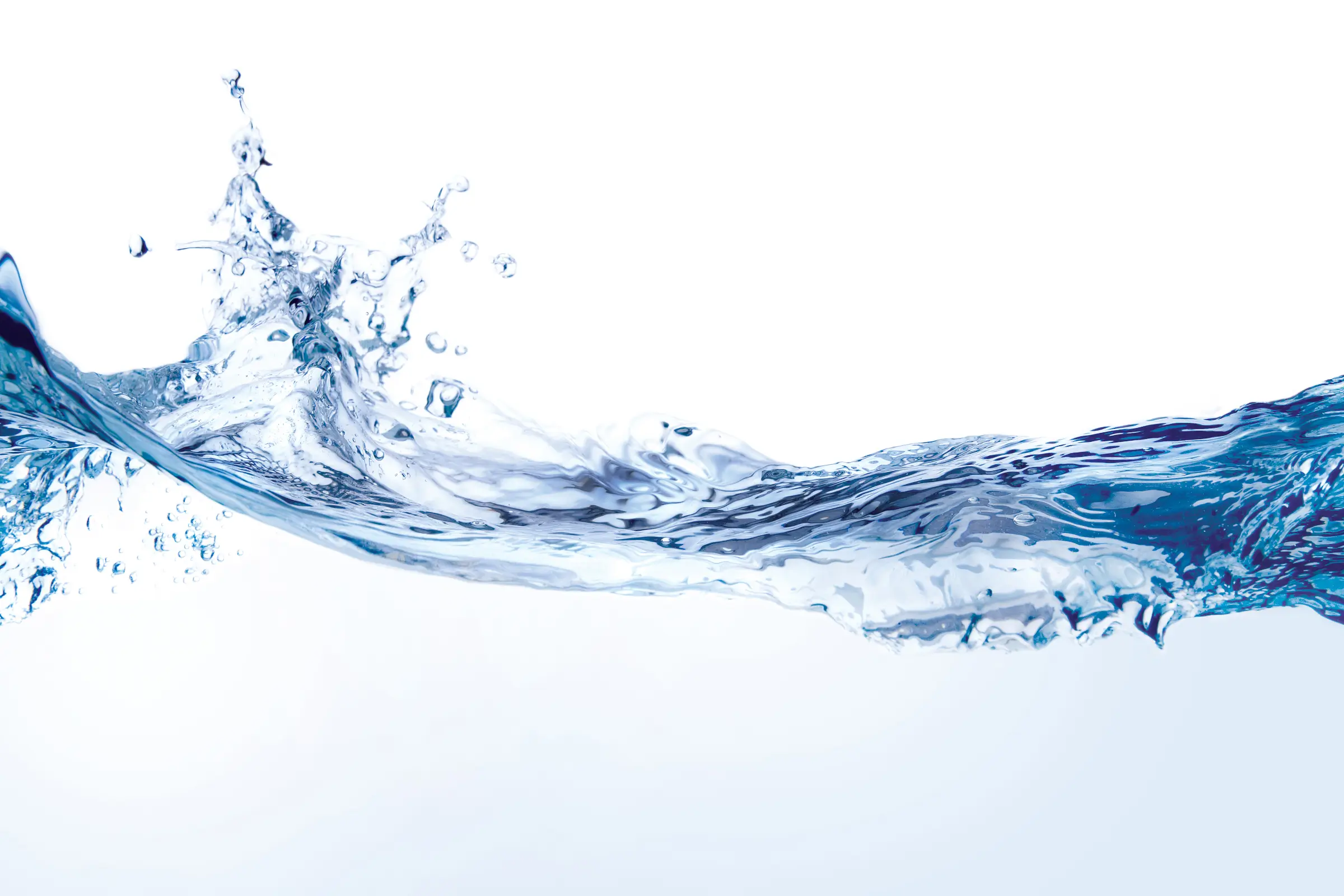Battling to keep disease out of Ayilo Refugee Camp

When violence broke out in South Sudan in December 2013, tens of thousands of people fled into neighboring Uganda for safety. They are now housed in various settlements around Adjumani, approximately 440 kilometers north of Kampala, near the border with South Sudan.
Water at the Ayilo settlement camp cannot meet the demand. Water shortages and poor sanitation mean refugee families are at higher risk of disease and epidemic outbreaks.
Existing latrine facilities do not offer sufficient privacy, forcing refugees to use them in the night. Others also have to wait for the cover of darkness to take their baths in the open. Without proper facilities in place, refugees wash their clothes on the open ground, sometimes close to water points or next to their shelters.
Water is delivered to the camp in trucks and poured into tanks in strategic positions. But there are only a limited number of tanks available, which means the trucks make several trips to the River Nile and boreholes close by to collect water.
With support from UNICEF, Water Missions Uganda has established a successful water and sanitation project in the camp: a motorized system to pump water to the refugees and host communities. This will help improve the water and sanitation conditions in the refugee camp. It is designed to support 5,000 refugees with safe and clean drinking water. This will help the refugees live with dignity and respect. Access to safe clean water and sanitation is a human right that should be given to each and every one regardless of where they come from!
As the project was commissioned I saw tears of joy among the beneficiaries, especially women and girls who are freed from the daily burden and dangers of walking long miles multiple times a day to find water for their families. With safe clean water, the disease burden will be limited, thus improving their health.
"Oh!!! Water!!" Deborah, a young mother with short cornrowed hair said in her limited English, a joyous look etched in her brow. She pointed to the spigots as the water flowed out. "No more physical labor to prime the pump!" she exclaimed. "No more walking further distance to look for water. God has finally remembered us as He said!!"
On this particular day the local school was closed due to the excitement around clean water; the pupils couldn't attend class as they wanted to stay near the water point. Clean water for children is vital. It means they are no longer susceptible to water borne diseases or will miss school due to illness. Girls miss more school than boys because they cannot attend during their periods due to a lack of necessary supplies. The long term effects of children neglecting education can impact the future potential of a country. So one day out of school to celebrate the gift of clean water was welcomed by all in this refugee camp!
Related Impact Stories
